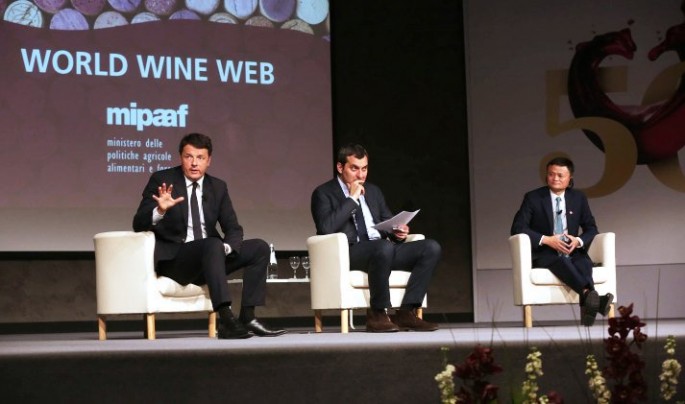Italy will be partnering with e-commerce giant Alibaba to reinvigorate Italian wine sales to China where it still lags against France and other wine-making countries.
In a joint conference with Alibaba founder Jack Ma, Italian Prime Minister Matteo Renzi expressed hopes that Alibaba's knowledge of the digital economy will help transform Italy's wine industry and the economy in general.
"Italy has lost too many opportunities in the e-commerce sector. The only way for small companies to keep up with global competition is to turn digital," Renzi said at the Vinitaly wine fair in the northern city of Verona.
Jack Ma, who also serves as Alibaba's executive chairman, said that the company aims to boost the share of Italian wines "from 6 to 60 percent" of all the bottles sold on its e-commerce platforms.
"Chinese people have a passion for all things Italian. Alibaba wants to be the gateway to China for Italian brands and small businesses," he said.
Ma also announced the launch of a Wine and Spirits Festival on Sept. 9, an online event aimed at promoting international wine and spirit brands to Chinese buyers.
Italian red and white wines make up for only 5 percent of Chinese imports, worth an overall 1.8 billion euros ($2 billion), according to a report by research firm Nomisma.
Industry analysts point to the majority of Italy's winemakers as being small, family-owned operations and lack of national strategies on exports and high tax duties as challenges to reaching out to complex markets like those of China.
Nomisma, which publishes the annual Wine Monitor report, said that out of a total of 55,000 wine producers in Italy, almost 85 percent make less than 10,000 bottles. And of Italy's 5.4 billion euros of wine exports, only 87 million euros worth go to China.
"We are still very little known in China where culturally wine is still not perceived as a household habit," Roberto Giannelli, owner of Tuscan winery San Filippo, told Reuters.



























